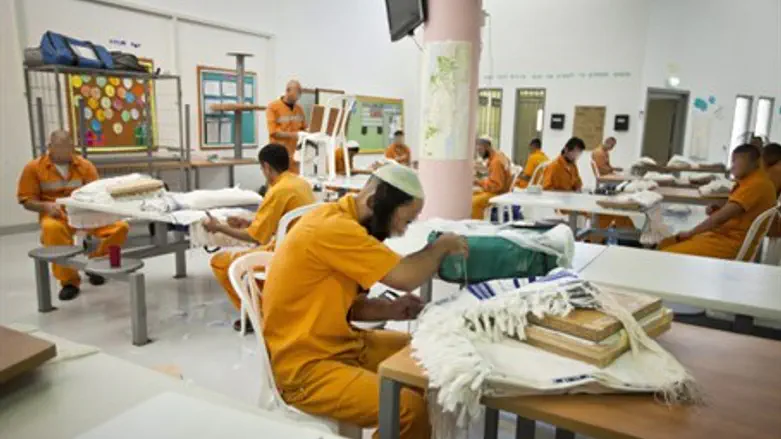
Rabbi Yekutiel Vizner, the chief rabbi of the Prison Services, has been spending Yom Kippur in jail for several years, leading services for the prisoners. The prayers never fail to bring him to tears, he related.
“You see the tears… The prisoners ask me, ‘Rabbi, does G-d accept our repentance? We are truly sorry,’” he told Radio Kol Chai.
“I tell them that the gate of repentance is never locked, and certainly the gate of tears is never locked,” he added, referring to the Jewish mystical concept of “gates” through which prayers enter heaven.
Most prisoners go through a process of regret and repentance for their crimes, he continued. “It’s a genuine, profound process stemming from the innate desire for forgiveness and purity.”
Among those praying were Jews from various religious communities, he said, but also many who do not wear a kippah (yalmulkah). “I don’t believe in the yalmulkah as the exclusive sign of religiosity,” he explained.
Rabbi Vizner prayed with men in one prison, then moved to the Neve Tirza women’s prison.
“I saw the plea, the outcry. On my right sat a woman who gave birth two days ago… I put my hands on the heads of two babies and together with the women, prayed, ‘Let this be an hour of mercy… ‘ 25 women start crying,” he related. Non-Jewish prisoners looking on were clearly moved by the scene, he added
“I ask G-d – these babies, what was their sin?” Rabbi Vizner said. “And you see these women begging G-d to forgive them. Who am I to judge? G-d, see how much power there is in the places that seem lowest. See how much they love You.”
Rabbi Vizner started crying during the interview. “Whoever has not been there, cannot understand,” he said.
“Last year I was at the Tefilat Zaka prayer, and someone shouted ‘Oy’ – that has stayed with me, 365 days a year.”